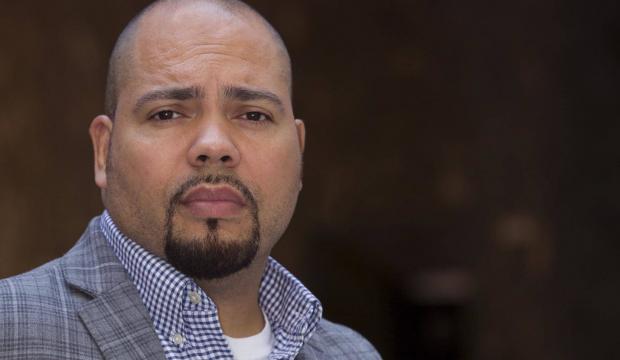NEW Nationally Syndicated Op Ed: School Vouchers Aren’t the Answer #AERA17 – Cloaking Inequity:
NEW Nationally Syndicated Op Ed: School Vouchers Aren’t the Answer #AERA17
President Donald Trump has proposed cutting after-school programs for young children as well as grants and federal work-study programs for college students. But his most significant attack on public education may be his pledge to spend $20 billion on market-based school choice, including charter schools and vouchers.
Conventional voucher policies now exist in 16 states. Taxpayers in those states help pay private-school tuition for about 175,000 students each year. Education savings accounts that let states circumnavigate constitutional language against public funding for private and religious organizations are used in 17 states and generate another 250,000 vouchers annually.
Before the public embraces Trump’s plans to create even more vouchers, there are important things it should know about the voucher concept’s origination.
Milton Friedman, a University of Chicago economist and apostle of free-market fundamentalism, believed corporations should be able to profit from education. In 1997, he wrote an article arguing that vouchers were “a means to make a transition from a government to a market system,” to enable “a private, for-profit industry to develop” and ultimately abolish public schools.
In 1955, Friedman also wrote that he didn’t believe in government-sponsored integration of schools. Southern politicians agreed and used vouchers to create what were called “segregation academies” for whites only.
Proponents of school vouchers overlook this history and frame vouchers as a “limited” approach meant to help poor children in cities – even claiming they are a civil right.
The political argument that market-based school choice is the answer for longstanding inequalities in the American education system is at odds with the positions of most national civil rights organizations. The NAACP and Urban League agree that vouchers, in the words of a civil rights leadership conference report, “siphon away all-too-limited public education funds and fail to provide protection from discrimination and segregation.”
There is little evidence that vouchers have a positive effect on student performance. Martin Carnoy, a Stanford University professor of economics and education, concluded in a recent Economic Policy Institute report that the predominance of peer-reviewed research over 25 years shows vouchers don’t improve student success.
Yet vouchers are supported by well-heeled conservative philanthropists and conservatives including the Koch brothers, American Legislative Executive Council, Walton Foundation and Heritage Foundation. That’s because vouchers purposefully transfer the responsibility for educating students, and the funding that comes with it, away from the traditional democratically controlled public school system.
And vouchers give private schools greater control over the student population through such practices as “creaming” and “cropping.” Creaming occurs when private schools choose to enroll only the best and least costly students. Cropping is when they deny more costly students who are disabled, poor or language learners. Private “choice schools” can legally prevent them from enrolling.
Donald Trump and Secretary of Education Betsy DeVos remain committed to privately managed school choice funded by public tax dollars, despite a sordid racial history, opposition from the civil rights community, state constitutional problems and the proven failure of the approach to help students.
You can see the extended version published at The Progressive magazine
here.Read more about school vouchers here.
Please Facebook Like, Tweet, etc below and/or reblog to share this discussion with others.
Check out and follow my YouTube channel
here.
Want to know about Cloaking Inequity’s freshly pressed conversations about educational policy? Click the “Follow blog by email” button in the upper left hand corner of this page.
NEW Nationally Syndicated Op Ed: School Vouchers Aren’t the Answer #AERA17 – Cloaking Inequity:
 Since Betsy DeVos was tapped to be Secretary of Education, I’ve managed to pen close to 20,000 words about her. And now here she was, standing so close to me that I could make out the flat a’s of western Michigan in her voice. I’d made my way to tiny Van Wert, OH (pop. 10,718) so that I could be part of the long-awaited joint appearance by DeVos and American Federation of teachers President Randi Weingarten. I was expecting little in the way of drama; school visits are highly orchestrated affairs. It was dissonance I was after. DeVos’ brand of school reform—unregulated, profitable, hyper-partisan—has resistance here that extends well beyond the small group of protesters who’d gathered in the parking lot.
Since Betsy DeVos was tapped to be Secretary of Education, I’ve managed to pen close to 20,000 words about her. And now here she was, standing so close to me that I could make out the flat a’s of western Michigan in her voice. I’d made my way to tiny Van Wert, OH (pop. 10,718) so that I could be part of the long-awaited joint appearance by DeVos and American Federation of teachers President Randi Weingarten. I was expecting little in the way of drama; school visits are highly orchestrated affairs. It was dissonance I was after. DeVos’ brand of school reform—unregulated, profitable, hyper-partisan—has resistance here that extends well beyond the small group of protesters who’d gathered in the parking lot.














